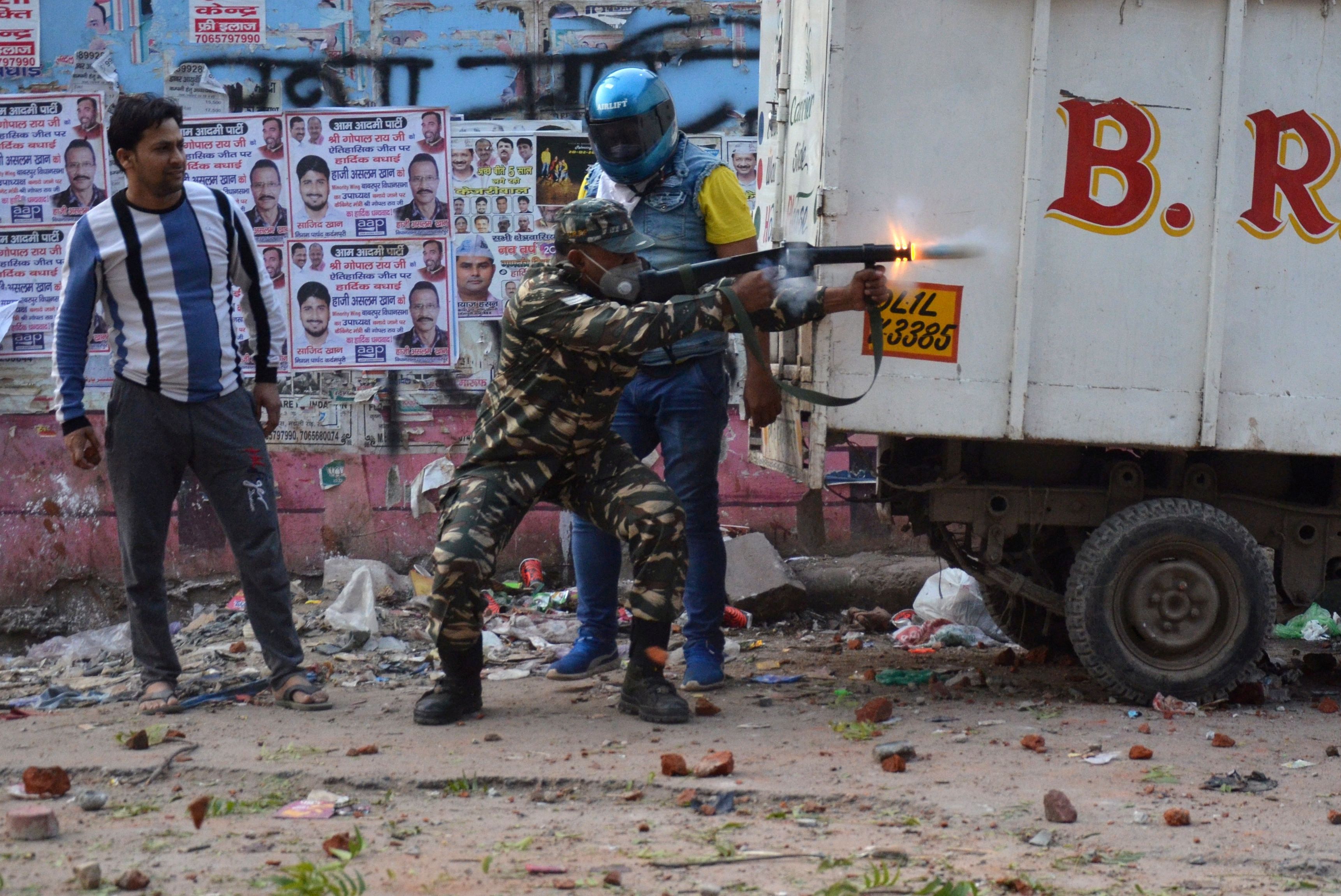News
February 25, 2020
Communal violence in Delhi: Over the past few days, India's capital city has seen its deadliest communal violence in decades. This week's surge in mob violence began as a standoff between protesters against a new citizenship law that critics say discriminates against India's Muslims and the law's Hindu nationalist defenders. Clashes between Hindu and Muslim mobs in majority-Muslim neighborhoods in northeast Delhi have killed at least 21 people, both Muslim and Hindu, since Sunday. We're watching to see how Prime Minister Narendra Modi's government responds – Delhi's police force reports to federal, rather than local, officials.
US-China tit-for-tat retaliations: The Trump administration is weighing up retribution against Chinese journalists and state-owned media – as well as Chinese intelligence agencies – after Beijing expelled three Wall Street Journal reporters last week over an opinion column that criticized Beijing's handling of the coronavirus. The Chinese Foreign Ministry, incensed by the "China is the Real Sick Man of Asia" headline, demanded an apology from the Journal before booting three of its reporters, none of whom had anything to do with the column. If the US responds in kind, it could lead to a cycle of tit-for-tat retribution and animosity between Washington and Beijing just as a preliminary trade agreement appears to have eased mounting tensions between the world's two largest economies. We're watching to see if the Trump administration follows through on its threat – or if it's just bluster.
Unlikely jihadist bedfellows: For years, the jihadists of al-Qaeda and the Islamic State have been at odds over territory and ideology. Bloody clashes between offshoots of the two groups have become commonplace in Yemen and Syria, further destabilizing those war-torn countries. But now, strangely, ISIS and al-Qaeda linked groups appear to have joined forces in West Africa, recruiting locals and divvying up vast swathes of territory in the Sahel – a semi-arid area stretching across the southern edge of the Sahara Desert. Motivated by mutual practical interests and common foes – Western forces and local governments – they've set aside their doctrinal differences and are gaining ground in states with weak central governments like Mali, Niger and Burkina Faso, the US military recently said. This all comes as the Trump administration is weighing a sizable drawdown of US troops in West Africa.
What We're Reading
The North Korean prisoner who escaped with her guard: For the second time in her life, Kim was in prison in North Korea for the crime of "brokering" – that is, helping keep communication and financial channels open between people who defected from North Korea and the families they left behind. A man named Jeon, meanwhile, was one of several guards at the Onsong Detention Center, keeping inmates like Kim under surveillance 24 hours a day. Through the iron bars of Kim's cell door, the two struck up an improbable friendship and, together, plotted their escape from the repressive regime to neighboring China. Kim and Jeon document this wild jailbreak in a fascinating visual story published by the BBC. It's worth your time.
More For You
Miami Mayor-elect Eileen Higgins points as she thanks her staff and supporters on the night of the general election, on Tuesday, Nov. 4, 2025.
Carl Juste/Miami Herald/TNS/ABACAPRESS.COM
A Democrat won Miami’s mayoral race for the first time in nearly 30 years. The Republican defeat will ring some alarms for the party – and their support among Latino voters.
Most Popular
Walmart’s $350 billion commitment to American manufacturing means two-thirds of the products we buy come straight from our backyard to yours. From New Jersey hot sauce to grills made in Tennessee, Walmart is stocking the shelves with products rooted in local communities. The impact? Over 750,000 American jobs - putting more people to work and keeping communities strong. Learn more here.
© 2025 GZERO Media. All Rights Reserved | A Eurasia Group media company.
